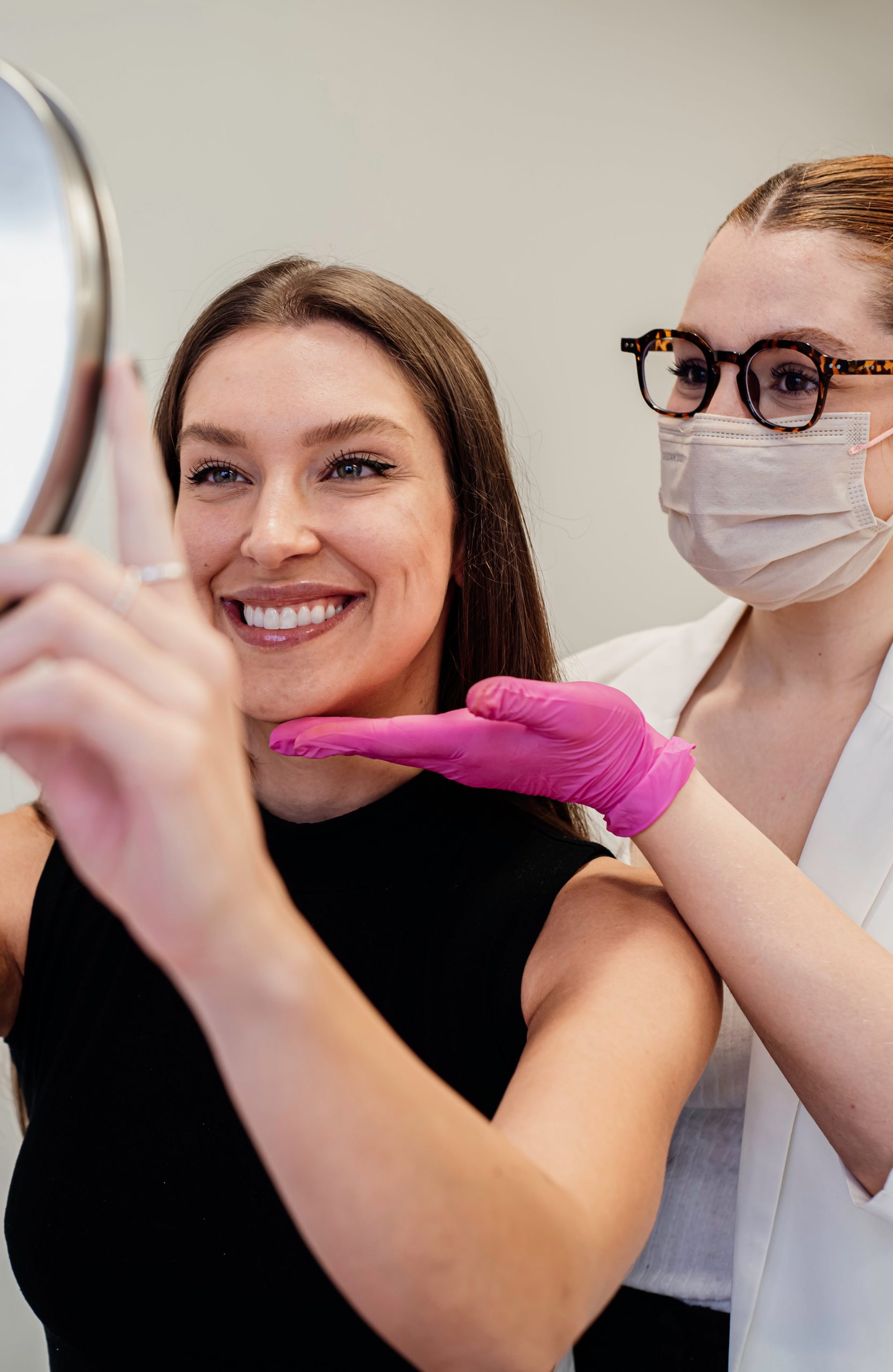The rise of social media has revolutionized the way businesses interact with their customers. For the beauty industry, social media platforms provide a valuable tool for marketing and promoting products. However, with great power comes great responsibility. In an industry where beauty claims can often border on the realm of exaggeration, it is crucial for beauty businesses to ensure that their social media claims are compliant with the law. This article will explore the importance of social media claims compliance for the beauty industry and provide insights into how businesses can navigate the complex legal landscape. Whether you are a startup or an established company, understanding the legal implications of your social media claims is essential for building consumer trust and avoiding costly legal consequences.

Introduction
In today’s digital age, social media has become a powerful tool for businesses to engage with their target audiences and promote their products or services. However, with this increased visibility comes the need for compliance with regulations and guidelines, particularly in the beauty industry. In this article, we will explore what social media claims compliance entails, why it is important, and the specific regulations governing the beauty industry. We will also discuss strategies for ensuring compliance on social media platforms, the consequences of non-compliance, and the steps businesses can take to create a comprehensive compliance strategy.
Understanding Social Media Claims Compliance
What is social media claims compliance?
Social media claims compliance refers to the adherence to regulations and guidelines set forth by regulatory bodies and authorities when making claims or promoting products or services on social media platforms. It involves ensuring that the statements made on social media are accurate, substantiated, and compliant with relevant laws and regulations.
Importance of social media claims compliance
Compliance with social media claims is crucial for businesses in the beauty industry as it helps maintain consumer trust, protects against legal repercussions, and preserves the reputation of the brand. By complying with regulations, businesses can demonstrate their commitment to transparency and authenticity, ultimately fostering greater credibility among their target audience.
Common mistakes in social media claims compliance
There are several common mistakes that businesses in the beauty industry make when it comes to social media claims compliance. These include exaggerating the benefits of their products, making unsubstantiated claims, failing to disclose material connections, and using false or misleading statements. These mistakes can lead to legal consequences, damage to reputation, loss of consumer trust, and negative impacts on sales.
Legal implications of non-compliance
Non-compliance with social media claims regulations can have serious legal implications for businesses in the beauty industry. Regulatory bodies such as the Food and Drug Administration (FDA), Federal Trade Commission (FTC), European Union (EU), and Advertising Standards Authority (ASA) have the authority to investigate and penalize businesses that violate these regulations. Potential legal penalties may include fines, product recalls, or even legal action from consumers.
Specific Regulations for the Beauty Industry
Regulatory bodies overseeing the beauty industry
The beauty industry is closely regulated to ensure consumer safety and prevent false or misleading claims. Regulatory bodies such as the FDA in the United States, the EU Cosmetic Regulation in the European Union, and the ASA in the United Kingdom have established specific regulations and guidelines for the beauty industry. Businesses operating in this industry must familiarize themselves with these regulations to ensure compliance.
FDA regulations for beauty products
The FDA regulates cosmetics and beauty products in the United States. According to the Federal Food, Drug, and Cosmetic Act (FD&C Act), cosmetics must be safe for use and properly labeled. Claims made about a cosmetic product must be truthful, not misleading, and supported by adequate substantiation. Additionally, specific labeling requirements, such as ingredient lists and warnings, must be followed.
FTC guidelines for advertising
The FTC regulates advertising practices in the United States, including those related to beauty products. The FTC requires that any claims made in advertising be truthful, substantiated, and not misleading. This means that businesses must have competent and reliable scientific evidence to support their claims and must clearly disclose any material connections, such as paid endorsements or sponsored content.
EU regulations for cosmetics
In the European Union, cosmetics are regulated under the EU Cosmetic Regulation. This regulation includes provisions regarding product safety, labeling requirements, and claims made about cosmetic products. Claims must be truthful, not misleading, and substantiated by adequate evidence. The EU also prohibits the use of certain claims, such as those implying medical benefits or misleading consumers.
Advertising Standards Authority (ASA) regulations for beauty products
The ASA is the regulatory authority for advertising in the United Kingdom. It enforces the advertising codes set forth by the Committee of Advertising Practice (CAP). The CAP Code applies to all forms of advertising, including social media. Businesses must ensure that their claims are accurate, substantiated, and do not mislead or harm consumers. The ASA has the power to investigate complaints, require changes to advertising, and impose sanctions.
Ensuring Compliance on Social Media Platforms
Reviewing advertising claims
Before making any claims on social media, businesses in the beauty industry should thoroughly review their advertising claims to ensure they are accurate, truthful, and compliant with regulatory requirements. This includes considering the language used, the level of substantiation available, and whether the claims could be considered misleading to consumers.
Using substantiation for claims
To ensure compliance, businesses should have proper substantiation for any claims made on social media. This substantiation should include scientific evidence, studies, or other reliable sources that support the claims being made. It is important to ensure that the substantiation is current, accurate, and applicable to the specific claims being made.
Disclosing material connections
When working with influencers or engaging in sponsored content on social media, businesses must disclose any material connections they have with the party making the endorsement or promoting the product. Material connections include financial relationships, free products or services received, or any other benefits that could affect the credibility of the endorsement. These disclosures should be clear, conspicuous, and readily visible to consumers.
Clear and conspicuous disclaimers
Certain products or claims may require additional disclaimers to clarify limitations, potential risks, or expected outcomes. Businesses must ensure that these disclaimers are clear, conspicuous, and easily noticeable to consumers. The placement, size, and formatting of the disclaimers should be carefully considered to ensure compliance.
Avoiding false or misleading statements
Businesses must refrain from making false or misleading statements on social media. This includes avoiding exaggeration, deception, or making claims that cannot be substantiated. Businesses should ensure that the statements made about their products or services are accurate, clear, and do not mislead or deceive consumers.
Monitoring influencer marketing
When working with influencers or engaging in influencer marketing campaigns, businesses must closely monitor the content being published on social media platforms. It is important to ensure that the influencers are making truthful claims, disclosing material connections, and complying with regulatory requirements. Regular monitoring and auditing of influencer campaigns can help mitigate the risks associated with non-compliant content.

Consequences of Non-Compliance
Legal penalties and fines
Non-compliance with social media claims regulations can result in legal penalties and fines imposed by regulatory bodies. These penalties can vary depending on the severity of the violation and the jurisdiction in which the business operates. In some cases, fines can amount to substantial sums, leading to financial strain and potential damage to the business.
Reputation damage
Non-compliance can significantly damage a business’s reputation, especially in the age of social media where information spreads quickly. Consumers value transparency and authenticity, and any perception of dishonesty or deceit can lead to a loss of trust in the brand. Damage to reputation can have long-lasting effects, resulting in decreased customer loyalty and potential customer backlash.
Loss of consumer trust
Non-compliance with social media claims regulations can erode consumer trust in a brand. When businesses make false or misleading claims, consumers may feel deceived or betrayed, resulting in a loss of confidence in the brand’s products or services. Rebuilding trust can be difficult and time-consuming, making compliance essential for maintaining a positive relationship with consumers.
Negative impact on sales
Failure to comply with social media claims regulations can have a negative impact on sales. If consumers perceive a brand as dishonest or untrustworthy, they may choose to purchase products from competitors instead. Negative publicity or legal action resulting from non-compliance can also deter potential customers from engaging with the brand, ultimately leading to a decline in sales and revenue.
Creating a Social Media Claims Compliance Strategy
Identifying target audience and marketing goals
When developing a social media claims compliance strategy, businesses must first identify their target audience and marketing goals. Understanding the needs, preferences, and demographics of the target audience can help businesses tailor their messaging and claims to comply with relevant regulations. Similarly, aligning marketing goals with compliance objectives ensures a cohesive and compliant strategy.
Educating employees and influencers
Ensuring compliance on social media platforms requires educating employees and influencers about the regulations and guidelines governing claims and advertising. Providing comprehensive training on relevant regulations, disclosure requirements, and best practices can help mitigate the risk of non-compliance. This includes educating employees on the importance of accurate claims, proper substantiation, and disclosure of material connections.
Implementing content review processes
To maintain compliance, businesses should implement robust content review processes for social media claims. This involves establishing clear protocols and guidelines for reviewing and approving claims before they are published. Regular review and auditing of social media content can help identify potential compliance issues and ensure that claims are accurate, truthful, and properly substantiated.
Developing clear guidelines and policies
Clear guidelines and policies outlining compliance requirements and expectations should be established and communicated to all employees and influencers. These guidelines should cover topics such as product claims, substantiation, disclosure of material connections, and the use of disclaimers. By providing clear guidance, businesses can minimize the risk of non-compliance and ensure consistency in their social media claims.
Monitoring and Enforcement Measures
Regular monitoring of social media accounts
To ensure ongoing compliance, businesses should regularly monitor their social media accounts for any claims or content that may be non-compliant. This includes monitoring both company-created content and user-generated content that relates to the brand or its products. Regular monitoring allows businesses to identify and address potential compliance issues promptly.
Tracking social media mentions
Monitoring social media mentions and conversations related to the brand can provide valuable insights into consumer perceptions and potential compliance issues. Tracking mentions allows businesses to respond to concerns, correct misinformation, and address any compliance-related issues that arise. This proactive approach can help maintain consumer trust and mitigate the impact of non-compliant content.
Responding to customer complaints or concerns
When customers express concerns or make complaints on social media, businesses should respond promptly and appropriately. This includes addressing any compliance-related issues raised and taking corrective actions if necessary. Engaging with customers in a transparent and respectful manner demonstrates a commitment to compliance and can help rebuild trust in the brand.
Taking corrective actions and removing non-compliant content
If non-compliant content is identified on social media platforms, businesses must take immediate corrective actions. This may involve removing or changing the content, issuing retractions or corrections, or implementing necessary changes to comply with regulations. It is important to address non-compliance promptly and transparently to mitigate any potential legal or reputational consequences.
Case Studies of Social Media Claims Compliance
Successful compliance strategies in the beauty industry
Several businesses in the beauty industry have successfully implemented social media claims compliance strategies. For example, XYZ Beauty, a leading skincare brand, consistently ensures that its claims are accurate, supported by scientific evidence, and compliant with relevant regulations. The company conducts regular internal audits and works closely with legal and compliance professionals to review and approve social media content before it is published.
Examples of non-compliant social media claims
Unfortunately, there have been instances of non-compliant social media claims in the beauty industry. For instance, ABC Cosmetics was recently found to have made exaggerated and unsubstantiated claims about the anti-aging properties of its products on social media. This led to an investigation by the regulatory authorities and substantial fines imposed on the company.

FAQs about Social Media Claims Compliance for the Beauty Industry
What are the most common compliance mistakes on social media?
The most common compliance mistakes on social media include exaggeration of product benefits, making unsubstantiated claims, failing to disclose material connections, using false or misleading statements, and not using clear and conspicuous disclaimers.
What are the consequences of non-compliance?
Non-compliance with social media claims regulations can result in legal penalties, reputation damage, loss of consumer trust, and negative impacts on sales.
Do small businesses need to comply with social media claims regulations?
Yes, all businesses, regardless of size, are required to comply with social media claims regulations. Non-compliance can have significant consequences for small businesses, including legal penalties and reputational damage.
How can I ensure my marketing campaigns are compliant?
To ensure compliance, businesses should review their advertising claims, use proper substantiation, disclose material connections, use clear and conspicuous disclaimers, avoid false or misleading statements, and monitor influencer marketing.
Is using influencers on social media risky when it comes to compliance?
Using influencers on social media can pose risks in terms of compliance. Businesses must ensure that influencers make accurate claims, disclose material connections, and comply with relevant regulations. Regular monitoring and auditing of influencer campaigns are necessary to mitigate compliance risks.
Conclusion
Compliance with social media claims regulations is of utmost importance in the beauty industry. By understanding the specific regulations governing claims and advertising, businesses can ensure accuracy, transparency, and compliance on social media platforms. Implementation of a comprehensive compliance strategy, including education, content review processes, and monitoring measures, is essential to avoid legal penalties, reputational damage, and loss of consumer trust. By prioritizing compliance, businesses can build and maintain a positive reputation, foster consumer trust, and ultimately drive sales and growth in the competitive beauty industry.
